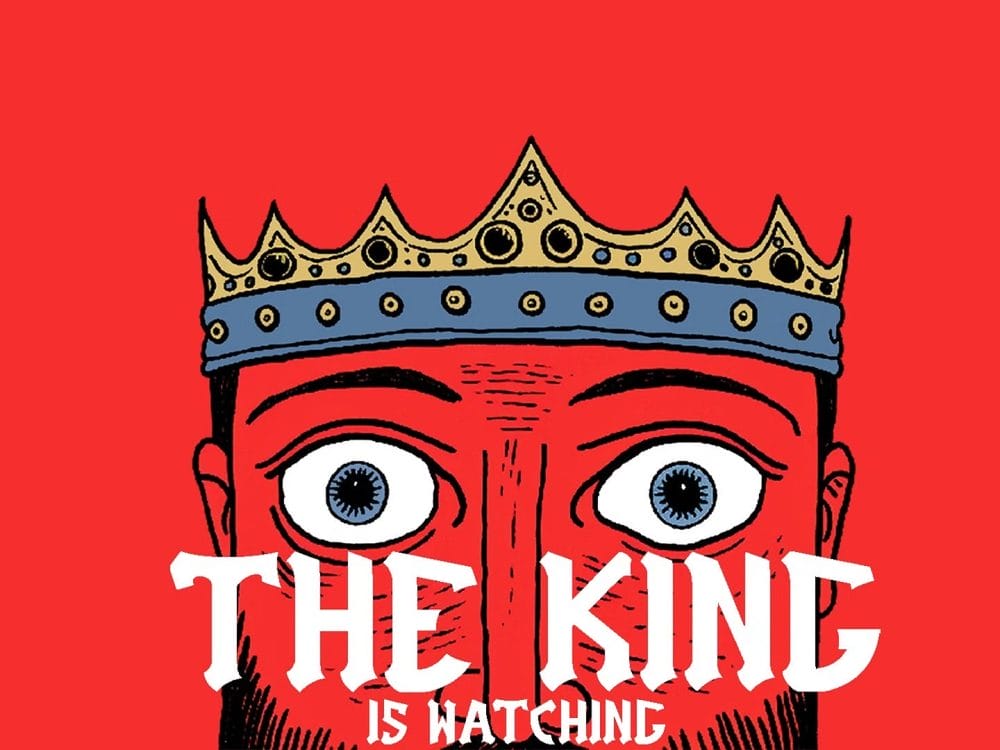It’s no secret to anyone I know that I love a roguelite. I also love creative little indie titles that use mechanics in unique ways. This week I got the chance to play a game that combines all of these things in The King is Watching.
The King Is Watching is a clever mash-up of city-building, roguelike progression, and tower defense, all wrapped in pixel art and a surprisingly strategic twist. You’re the monarch, but your power isn’t just in commanding troops – it’s in literally watching over your kingdom.
What’s Going on Over There?
At first glance, The King is Watching looks like another pixel-art indie title trying to blend city-building with tower defence, but it throws in a genuinely clever twist: your power as the king is quite literal. Buildings only function if you’re looking at them, so you end up managing your entire kingdom by dragging your royal gaze across the map. Farms stop farming, mines go quiet and soldiers forget how to hold a sword unless they’re under direct supervision. It’s a brilliantly ridiculous system that forces you to rethink the usual approach to resource management.
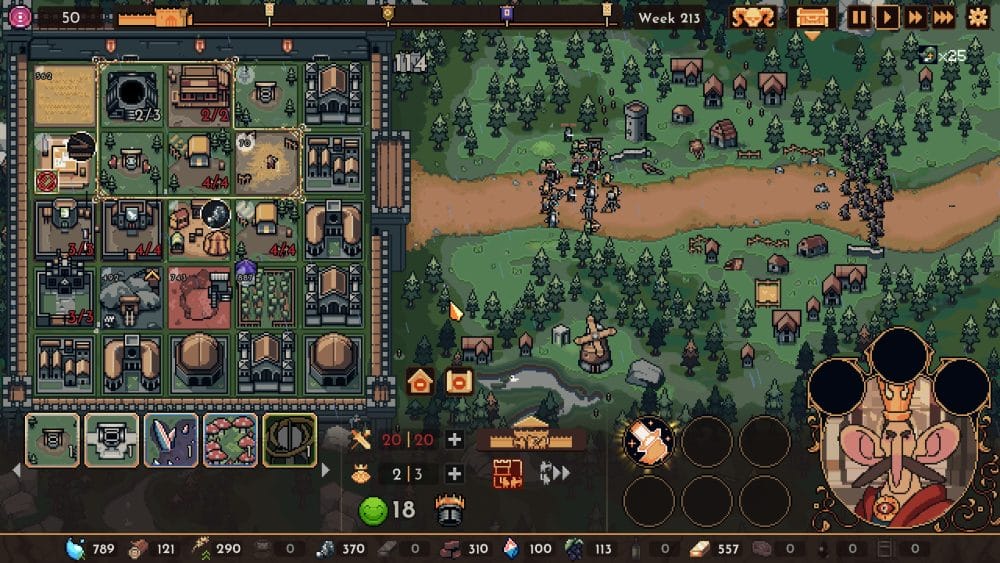
The tension builds quickly as enemies arrive in waves and you scramble to keep your vital structures active. There’s a fair bit of trial and error early on – like the time I converted too much of my wheat into gold and the market so was unable to train troops. In doing so I was greeted by an empty battlefield and an incoming horde of goblins, with no way to get troops out quickly. But the game really shines once you unlock new monarchs with quirky powers. One can raise the dead, another flings spells around, and each one opens up different strategies that make your next run feel fresh.
Micro-Micromanagement
Managing your resources to make sure you can adequately defend you castle is a big part of the game. Each troop type requires different resources, and how you get them relies on gathering resource tiles that you place on your grid. Each one has a different resource limit (with mines and mills producing more) so you’ll need to be careful not to over produce one thing and running out of room for another.
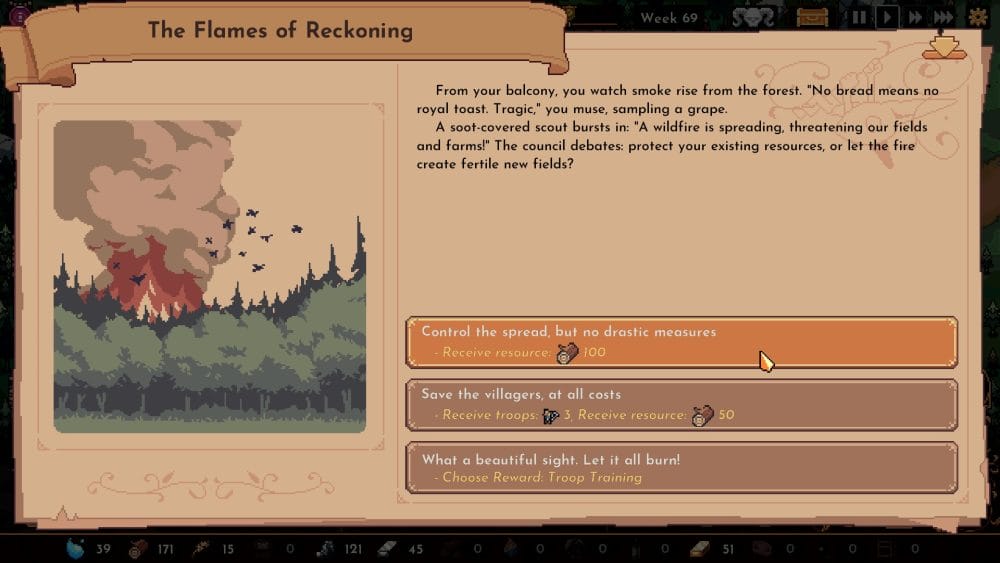
There are fourteen resources in total, split between basic and advanced types. The basics are what you’ll be wrangling most of the time: water, wheat, wood, ore, gold, clay, crystal and grapes. These come straight from buildings like wells, farms, mines and vineyards, and they’re essential for everything from training troops to expanding your gaze radius. For example, wheat helps recruit some units and make flour, while gold’s your go-to for building and upgrading (although some people prefer to be paid than fed). Crystal’s a bit more niche – used for spell research and arcane units – but still vital if you’re going for a magic-heavy build.
There’s a fair amount of RNG involved in what resources you’re given. You get a research bench, that produces basic resource tiles when being watched. You get a choice of 3 to choose from (rerolling is also available), and sometimes you’ll not get anything you need for our particular set up. One run I could not get wood for the life of me, and trust me wood is very important. You need it to increase the amount of troops you can deploy at any one time so stock up on tiles early if you see them!
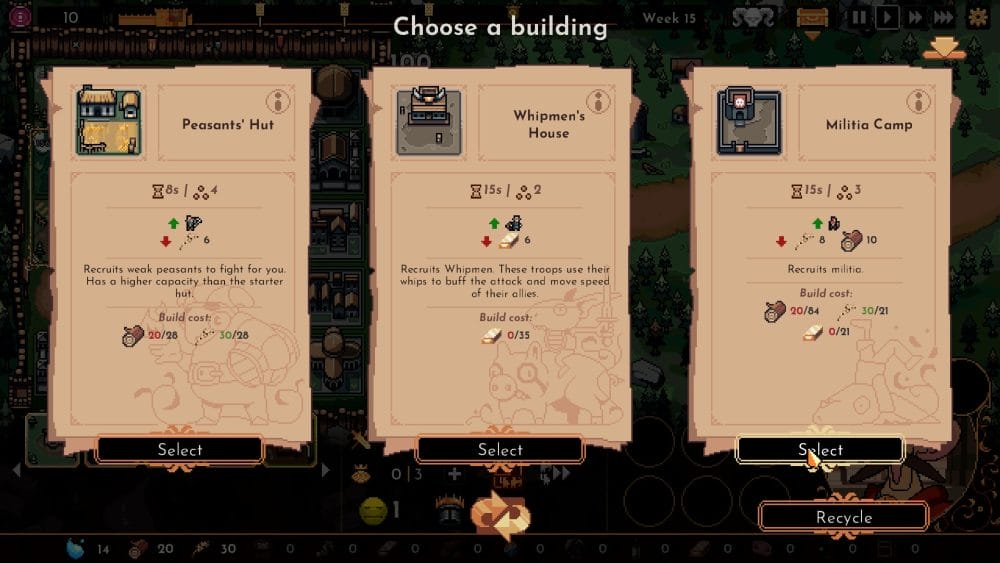
There’s also advanced resources: flour, metal, wine, meat, oil and furniture. These need refining through production buildings. Flour comes from wheat via mills, metal from ore via forges, and wine from grapes in wineries. Meat’s a bit more flexible – you can get it from water alone or mix water and wheat. Oil’s crafted from water and wood, and furniture needs wood and metal. These resources are pricier to produce but unlock powerful units and infrastructure, so they’re worth the effort once your economy’s ticking over.
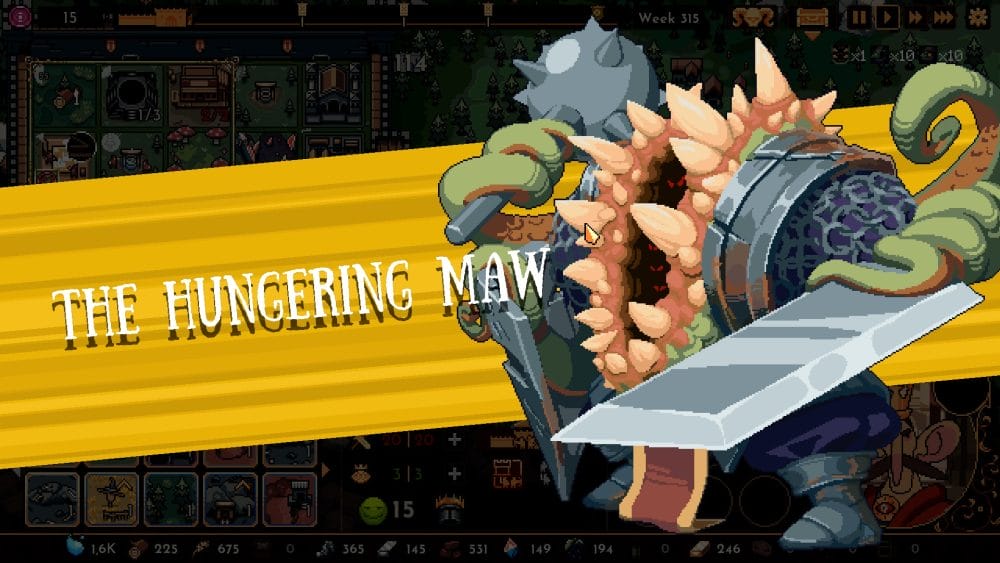
I know it sounds like a lot, but once you get into the flow of it (and after unlocking some of the meta progression upgrades) you’ll be training up Baked Dragons and sacrificing sheep for morale as your Geese Riders run over Goblins!
Meta-Progression
The King is Watching slots firmly into the Roguelite genre, meaning there’s meta-progression to make subsequent runs easier (or more difficult using the Threat system).
You earn upgrade points by completing runs – whether you win or lose – and spend them across four upgrade trees: Red, Yellow, Blue and Green. Each tree focuses on different aspects of your kingdom. Red and Yellow tend to boost resource production and unlock key mechanics like Tile Seals, which increase output from specific tiles. Blue is all about advisors and troop limits, letting you field more units and stack passive bonuses. Green leans into spellcasting and magical enhancements, perfect if you’re running a king with arcane abilities.
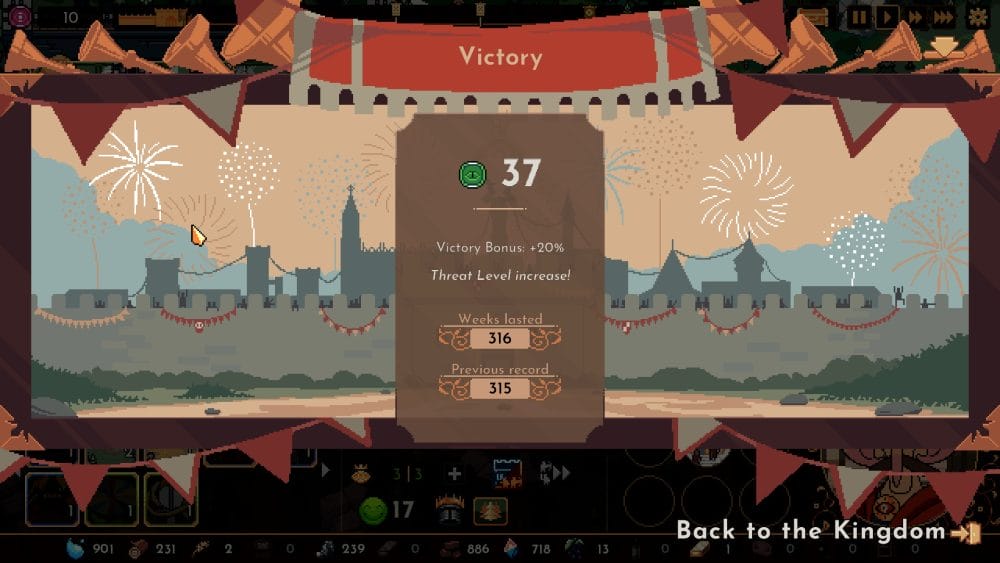
Some upgrades are game-changers early on. Banish the Nobles, for example, clears out useless tiles occupied by aristocrats, giving you more space to build. Advisor slots are another priority, unlocking extra ones lets you mix and match buffs that suit your playstyle. And troop limit upgrades? Essential for higher Threat levels so you can maximise rewards from Prophecies.
Prophecies in The King Is Watching add a clever twist to how enemy waves play out. Instead of being caught off guard, you get to peek ahead and choose the next three waves that’ll hit your kingdom. Each option comes with its own risk-reward balance. Tougher enemies offer better rewards if you survive, while easier ones give you breathing room but fewer perks.
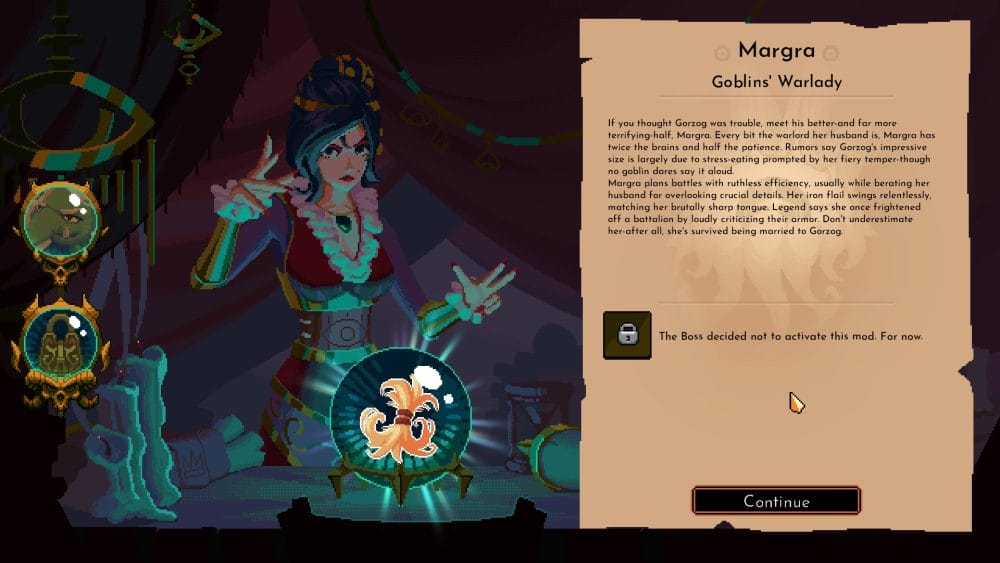
It’s not just about brute force either. Picking the right prophecy lets you plan your layout, advisor buffs and troop composition more strategically. If you know a wave of flying units is coming, you might prioritise ranged defences or magic-heavy builds. If it’s a horde of ground troops, maybe it’s time to bulk up your melee frontline.
Final Thoughts
The King Is Watching strikes a smart balance between kingdom-builder and roguelite, offering a run-based experience that’s both strategic and refreshingly unpredictable. Its layered meta progression and clever prophecy system give each attempt a sense of momentum, encouraging experimentation and long-term planning.
That said, the game isn’t without its quirks. The RNG can occasionally be maddening; not getting any wood for upgrades or an unlucky wave can undo even the most carefully laid plans. And with no save system mid-run, committing to longer sessions becomes a bit of a gamble, especially if life interrupts.
Still, when things click and your kingdom hums like a well-oiled machine, it’s genuinely satisfying. If you’re up for the challenge and don’t mind riding out a few rough rolls, this one’s well worth checking out.

The King is Watching was reviewed on PC and released on the 21st of July.
Gamer Social Club would like to thank the devs and publisher for the code.

